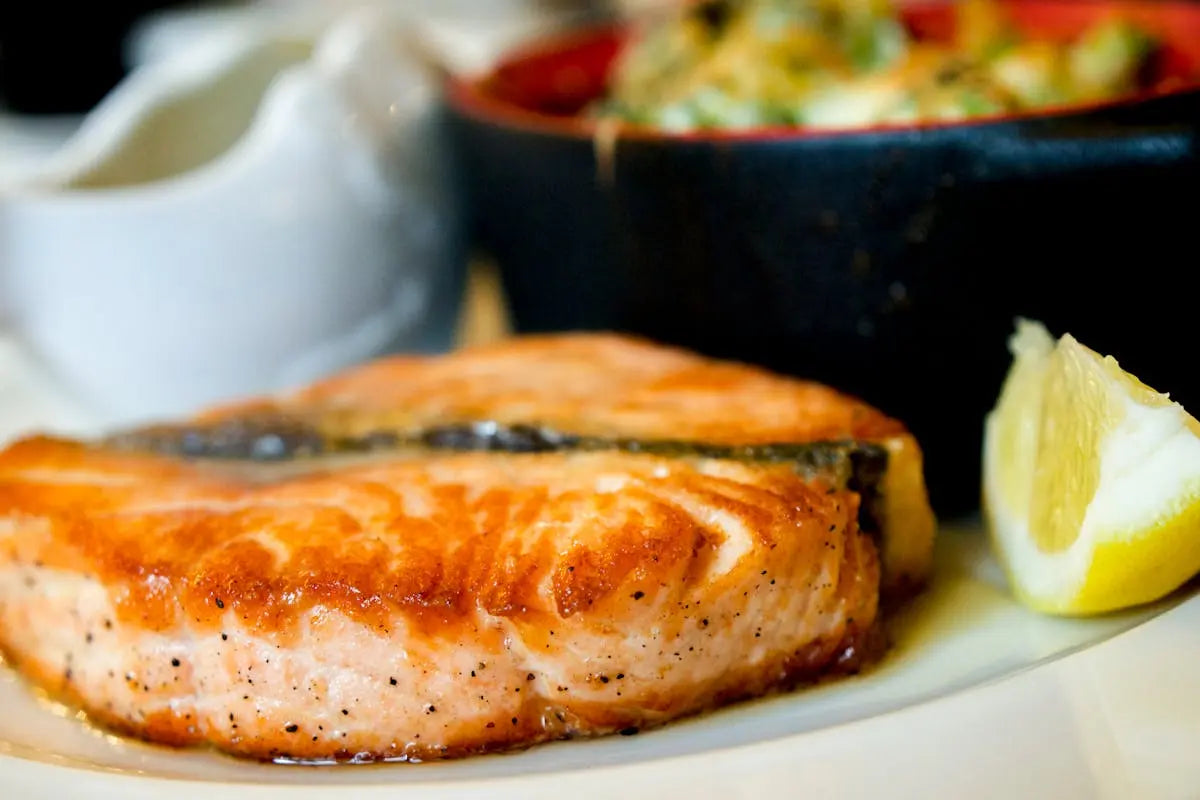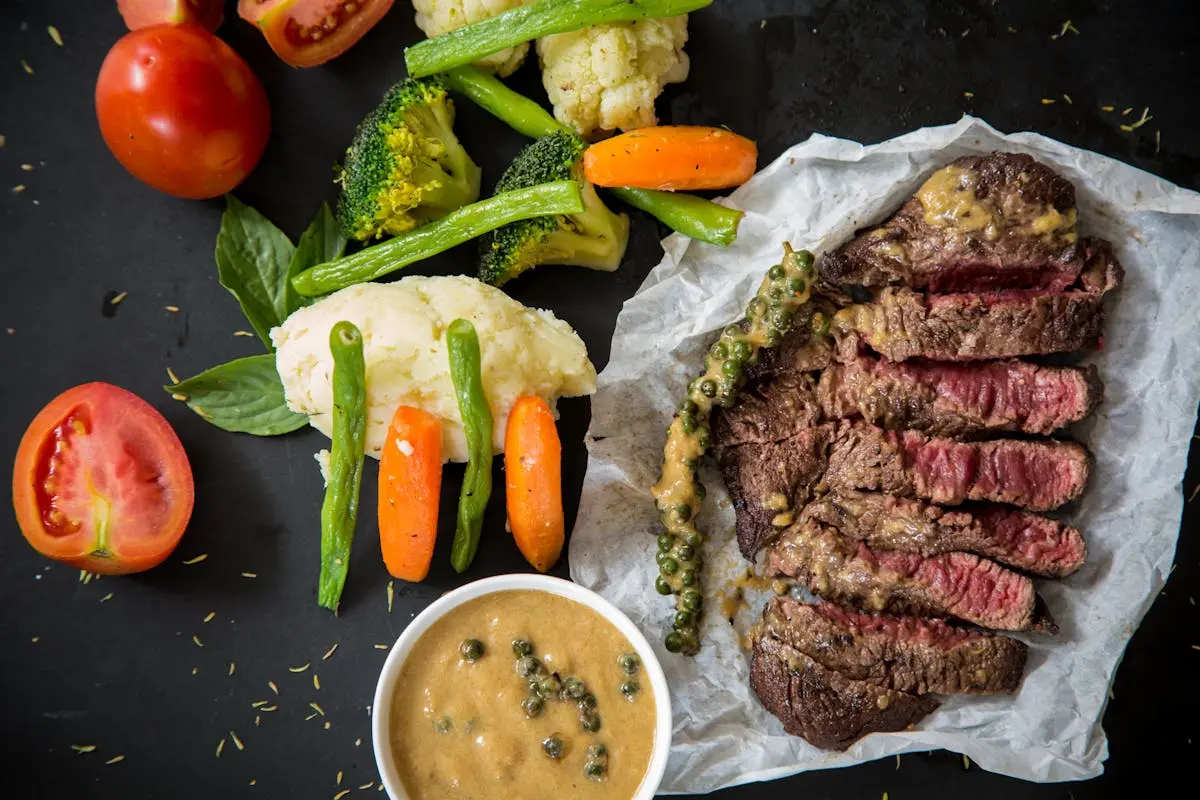How to Incorporate Performance Nutrition into Your Daily Routine for Maximum Impact

Introduction to Performance Nutrition: What Is It?
Performance nutrition isn’t just for elite athletes or those with eyes on the Olympic gold. It’s for anyone who wants to squeeze out a bit more from their daily hustle, be it work, workouts, or chasing around kids. So, what is it? Essentially, it’s about eating with a purpose. It means picking foods that fuel your body’s needs, enhancing both your physical and mental performance. Think of it as premium gas for your car but for your body. You wouldn’t pour just any old thing into your tank and expect it to run smoothly, right? Performance nutrition follows the same principle. By choosing the right foods, at the right times, in the right amounts, you’re not just eating. You’re optimizing. You’re tuning your body to perform at its best, whether you’re powering through a 5K or powering through your inbox.
The Importance of Performance Nutrition in Your Daily Routine
Eating right isn’t just about cutting back on the bad stuff; it’s about fueling your body the smart way, especially if you’re aiming to boost your performance, be it in sports, at the gym, or just in daily life. Think of your body as a high-performance engine. What you put into it massively impacts what you get out of it. Performance nutrition steps into this picture by optimizing what, when, and how you eat to enhance your body’s functioning. It’s about the right foods at the right times to keep you firing on all cylinders. You’ll notice not just spikes in your physical capabilities, but your focus and energy levels will soar too. Muscle recovery gets faster, your endurance levels go up, and even your mental game gets sharper. In a nutshell, tapping into performance nutrition isn’t just an athlete’s game; it’s a game-changer for everyone looking to max out their life’s potentials. So, yeah, it’s pretty crucial.
Identifying Your Personal Nutrition Goals
Before diving headfirst into performance nutrition, you gotta know what you’re aiming for. Setting personal nutrition goals acts as your roadmap. Want to increase muscle, lose fat, or boost your energy for better workouts? Your answer shapes the plan. If building muscle is the goal, focus on protein and calories. Looking to shed some pounds? It’s all about creating a calorie deficit. And if more energy is what you’re after, high-quality carbs and hydration are key. Remember, goals are personal. What works for one person might not be the best for you. Start by understanding what you want to achieve, then tailor your nutrition to meet those goals. Keep it straightforward and specific to make tracking progress easier.
Essential Nutrients for Optimal Performance
To kick your performance up a notch, focus on these critical nutrients: protein, carbs, fats, vitamins, and minerals. Protein repairs and builds muscle, especially important post-workout. Aim for lean sources like chicken, fish, or plant-based options. Carbs fuel your body; opt for whole grains or fruits for sustained energy. Fats, particularly omega-3s found in fish and nuts, support heart health and reduce inflammation. Don’t skimp on vitamins and minerals—they keep your body systems running smoothly. Iron, calcium, and vitamin D are top picks for athletes. Remember, balance is key. No single nutrient can carry the show; they all work together to boost your performance.
Planning Your Meals for Performance Nutrition
Planning your meals is key to nailing performance nutrition. Start simple. Think about balancing your plate with the big three: carbs, proteins, and fats. These are your body’s fuel. For the carbs, go for whole grains, fruits, and veggies. They give you energy that lasts longer. Lean meats, fish, and plant-based options are great for protein - they help repair and build your muscles. Fats? Yes, you need them too, but choose the healthy kinds like avocados, nuts, and olive oil.
Here’s a no-fuss approach: Break down your day into three main meals - breakfast, lunch, and dinner. Add a couple of snacks in between to keep the engine running. Start your day with a mix of carbs and protein to kickstart your metabolism. Midday, refuel with a balanced lunch, and for dinner, focus on lighter carbs and more proteins to repair muscles as you wind down. Snacks could be a piece of fruit, a handful of nuts, or a yogurt - simple but effective.
Remember, hydration is part of the plan. Drink water throughout the day. Not just when you’re thirsty.
Listen, don’t make it a chore. Switch it up to keep it interesting. Different veggies, proteins, and carb sources will keep your meals exciting and your body guessing. This way, you’re more likely to stick with it.
Finally, plan ahead but be flexible. Life happens. Some days might not go as planned, and that’s okay. Aim for consistency, not perfection.
Pre-Workout Nutrition: What to Eat Before Exercising
Before you hit the gym or the pavement, what you pile on your plate can seriously amp up your workout. Think of your body like a car; you wouldn’t set off on a road trip without filling the tank. Similarly, feeding your body the right fuel before a workout gears it up for peak performance. Grabbing a mix of carbs and protein about 30 to 60 minutes prior does the trick. Carbs are your go-to energy source. These include simple options like a banana or oatmeal that break down fast and get that energy pumping. On the flip side, protein preps your muscles, reducing the breakdown and kick-starting recovery. A yogurt or a small peanut butter sandwich are perfect picks. Remember, keep portions light to dodge any tummy troubles during your session. This combo of nutrients ensures you’re revved and ready to crush your workout goals.
Post-Workout Nutrition: Recovery Foods for Maximum Impact
After pushing your limits with a solid workout, your body needs the right fuel to repair and grow. Skipping on post-workout nutrition is like trying to drive a car without gas—you won’t get far. Let’s cut to the chase: protein is your best friend here. Aim for about 20-40 grams post-exercise. It’s the key player in muscle repair. Carbs are your next go-to. They replenish the energy stores you just torched. Think about a ratio of 3:1 carbs to protein for the ideal recovery mix.
Now, real food beats supplements any day. For protein, grilled chicken, tuna, or a dairy-based snack like Greek yogurt are top picks. For carbs, sweet potatoes, quinoa, or fruit like bananas or berries do the trick. Don’t forget hydration—water or a sports drink can refill those lost fluids.
Here’s the kicker: timing matters. Your body’s ready to soak up nutrients like a sponge right after you work out. So, try to eat within 45 minutes to an hour post-workout. This window is golden for recovery.
To sum it up, your post-workout meal or snack is crucial. It’s not just about filling up; it’s about smart recovery. Get this right, and your body will thank you with better strength and endurance. Let’s keep it simple but effective—fuel up right and keep pushing your limits.
Hydration: The Role of Water in Performance Nutrition
Hydration isn’t just about quenching thirst; it’s a core pillar of performance nutrition. Your body needs water to function at its best, especially if you’re active. Think of water as the fuel that powers your body’s engine. When you’re well-hydrated, your body can perform all its tasks more efficiently, from digesting food to maintaining muscle health.
Without enough water, things start to go south. Dehydration can lead to tiredness, headaches, and even affect your concentration levels. And for athletes or anyone pushing their physical limits, staying hydrated can make the difference between hitting a new personal best and feeling too worn out to continue.
Aiming for about 8 glasses, or around 2 liters of water a day is a good benchmark, but remember, the exact amount depends on your activity level, the climate you live in, and your body size. One tip to stay on top of your hydration game is to carry a water bottle with you and sip throughout the day, not just when you’re thirsty.
So, make water your best friend. It’s a simple, effective way to enhance your physical performance and keep your body running smoothly.
Common Mistakes to Avoid in Performance Nutrition
In the world of performance nutrition, it’s easy to drop the ball if you’re not careful. First off, skipping meals is a no-go. Your body needs a steady stream of nutrients to keep you at the top of your game. Think of it like putting gas in a car; you wouldn’t expect it to run without fuel, right? Next up, don’t fall into the trap of relying too much on supplements. Yes, they can help, but they can’t replace real, wholesome food. Supplements are there to fill in the gaps, not to be the main stars of your nutrition plan. Another big mistake is not drinking enough water. Staying hydrated is crucial, especially if you’re active. Not enough water, and you’re looking at performance going downhill fast. Also, steering clear of all fats isn’t smart. Your body needs healthy fats for energy and to support cell growth. And lastly, don’t ignore carbs. They’re fuel for your workouts, so cutting them out entirely is like trying to drive your car without gas. Keep these pitfalls in mind, and you’re on your way to nailing performance nutrition.
Implementing Performance Nutrition: Tips for Getting Started
Starting with performance nutrition might seem daunting, but it’s quite simple once you break it down. Think about fueling your body the same way you’d fuel a high-performance sports car. Here are some straightforward tips to get you rolling. Firstly, focus on whole foods. That means more greens, fruits, whole grains, lean proteins, and healthy fats. Cut down on processed stuff. Secondly, hydration is key. Aim to drink at least 8 glasses of water a day. No, coffee doesn’t count. Thirdly, balance is critical. Each meal should have a good mix of carbohydrates, proteins, and fats. Not too much of any one thing. Lastly, timing matters. Eating a solid meal 2-3 hours before intense physical activity and snacking on something light 30 minutes before can make a big difference. Think of your food as your fuel; to get the best performance, you need the best fuel at the right time. It’s all about building habits. Start small and gradually make these changes part of your everyday routine. Before you know it, performance nutrition will just be your way of life.







